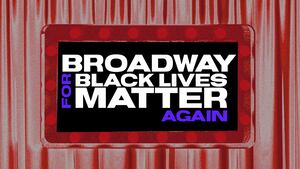Sometimes plays reach to be something else. At their most urgent they can be manifestos, like Keenan Scott II’s Thoughts of a Colored Man, which opens tonight on Broadway in the same week that Jon Gruden resigned as the coach of the Las Vegas Raiders after various racist, sexist, homophobic, and transphobic comments he had made in the past were exposed.
It opens as America and American theater’s reckoning with race and racism, brought into sharp focus by the murder of George Floyd, is ongoing. It opens as Black people’s voting rights are being brazenly curtailed. It opens as the Texas state legislature, in a wider climate of transphobia, is on the verge of passing a bill Republican lawmakers have been chomping at the bit to pass which will stop trans kids from playing sports. All of these things circulated in the critic’s mind after viewing Thoughts of a Colored Man. Is this a conventional play? No. Its animating principle is that sometimes things just need to be said.
While the play, directed by Steve H. Broadnax III, was not written in response to events of right now, it is a timely and sometimes moving interrogation of what it means to be a Black man at this moment. The play speaks bluntly and directly to an audience about what racism, inequality, aspiration, love, sexuality, tragedy, success, and happiness look like to a broad group of Black men in contemporary Brooklyn. It is unabashedly earnest.
To make its universalizing intentions clear, the characters are called Love (Dyllón Burnside), Happiness (Bryan Terrell Clark), Wisdom (Esau Pritchett), Lust (Da‘Vinchi), Passion (Luke James), Depression (Forrest McClendon), and Anger (Tristan Mack Wilds).
“Who is the Colored Man? Is he a King? Ruler of empires and gold, conqueror and holder of God’s knowledge...Or is he a slave? Forced laborer of land he didn’t know and couldn’t own. Given a new history, void of his own tongue,” asks Depression at the very beginning of this 90-minute, intermission-free production. The play sets out to answer that question and many more.
Often, theater and other art-forms cloak cultural issues in metaphor, or through intentionally complex distillations of character. This play, acted by the company with energy and wit, is, Scott has written, “rooted in spoken word and has the spirit and energy of Slam poetry.” The men’s worlds are animated via a series of vignettes, which take place in front of a giant advertising hoarding reading “Colored.”

Left to right: Tristan Mack Wilds, Dyllón Burnside, Forrest McClendon, Da'Vinchi.
Julieta CervantesDepression works in a local Whole Foods, a symbol of gentrification. He has attained a full scholarship to M.I.T. (which he humbly doesn’t advertise), though has chosen to stay in the neighborhood because of family commitments. He cannot stand his place of employment. He imagines telling a typical customer: “I’m sorry ma’am if the products we sell aren’t good enough for your stuck-up ass. And I truly apologize if I don’t know the price of the random item that you’re holding up above your head from 200 feet away. Maybe I don’t know it, because you’re screaming from across the store… lady I’m not your husband.”
Longtime friends Love and Lust—one proudly romantic, the other leerily carnal—mull how much they want to get laid, and what intimacy means; while Lust wants to “smash,” Love wants to seduce. Lust can’t believe the woman he’s cruising on the street is actually called Karen. How women see them we do not know.
Most of the characters feel left behind and disenfranchised by change—except Happiness, who we first meet on his zesty morning jog. A well-off director of finance, he is brimming with cheer about all the shiny transformations he is able to enjoy and spend money on in his new neighborhood.
The set-piece that got the biggest response at the performance this critic attended saw all the men at the barbershop, where things first started getting salty when Lust opined that “Lebron is better than Kobe.” Then a larger debate about gentrification unfolds, with most of the men decrying the market forces, and subsequent rich-person influx, that they see as taking their community away from them.

Left to Right: Luke James, Esau Pritchett, Da'Vinchi, Forrest McClendon, Dyllón Burnside, Tristan Mack Wilds, Bryan Terrell Clark.
Julieta CervantesAs the men talk about what body parts they prefer on women, the action freezes, as Happiness breaks the fourth wall to tell us how uncomfortable this always made him feel—being a gay man around this kind of stuff. His confusion is both humorous and serious. What should he say or do? When another character voices homophobia, he is in the minority—gently but emphatically put in his place by Wisdom, the barber.
The play gives space to a plurality of views and experiences—this is thought-provoking, but sometimes so bite-sized this critic wanted to stay longer with the characters themselves.
“People have actually told me I wasn’t black enough because I didn’t ‘struggle.’ Why is struggling synonymous with being Black?” says Happiness. “Everyone wants to be Black—,” says Love, “Until it’s time to be Black,” finishes Lust. Meanwhile, the solid and dependable Anger coaches kids basketball, hoping to keep ambitions and hope alive. Happiness and Depression have a moving conversation about their very different lives and come to an understanding, with Happiness seeing in Depression “a connection to community. You know exactly who you are. I feel like I’ve always been stuck between these two worlds.”
There is a tragedy in the play, which leads to a powerful final discussion about the fragility of Black men’s lives. How to craft a happy ending from this? The play, through Depression, states something that should not be radical, or that should even need to be said, but sadly does, and emphatically, “All we ever wanted was to be ourselves… to live.”

Keenan Scott II
Brenna Merritt






